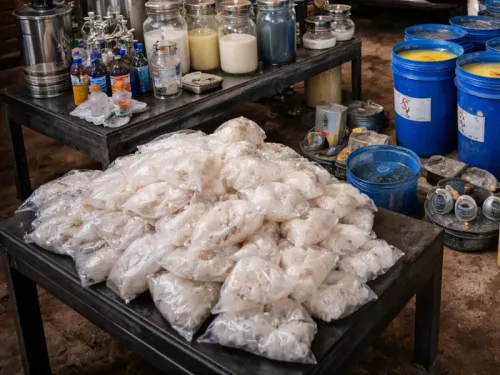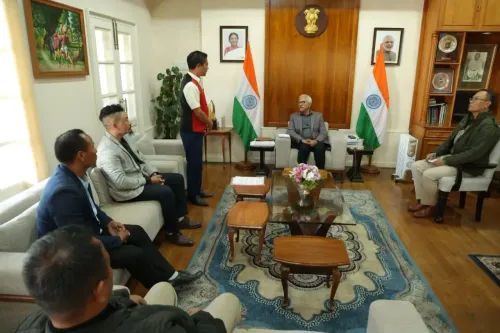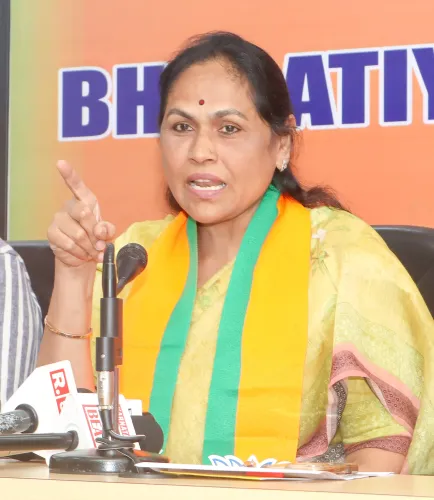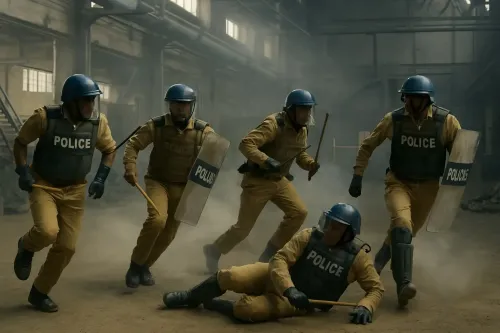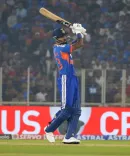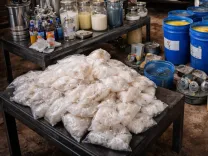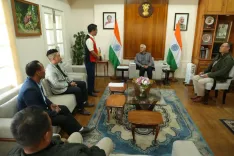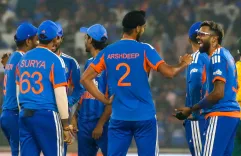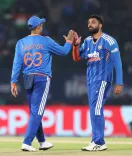Maharashtra Government Establishes Judicial Committees to Investigate Beed Sarpanch Murder and Dalit Youth's Death
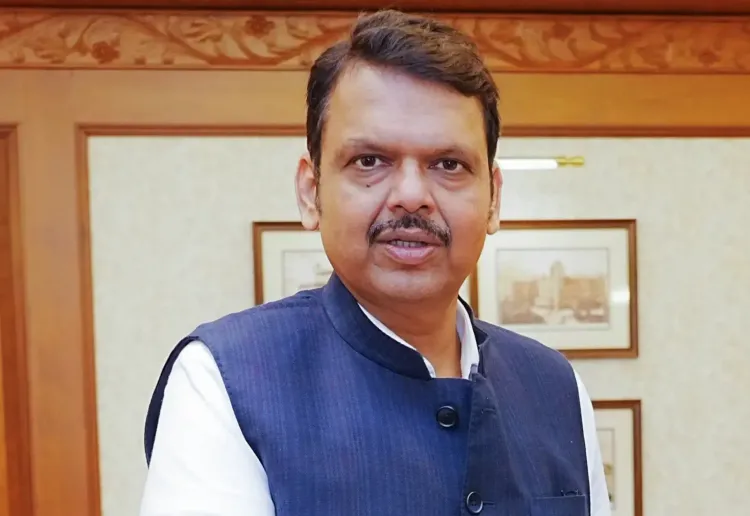
Synopsis
Key Takeaways
- Formation of judicial committees to probe significant incidents in Maharashtra.
- Justice M.L. Tahaliyani will investigate the murder of Santosh Deshmukh.
- Justice V.L. Achliya will inquire into Somnath Suryavanshi's death.
- Both committees expected to submit findings within six months.
- Investigations come amid rising political tensions and protests.
Mumbai, Jan 16 (NationPress) In the midst of a heated outcry regarding the brutal murder of Massajog sarpanch Santosh Deshmukh from Beed district, the Maharashtra government announced the establishment of a one-member judicial committee led by retired Bombay High Court Judge Justice M.L. Tahaliyani to investigate the matter.
Additionally, another one-member judicial committee has been constituted, presided over by retired Bombay High Court Judge Justice V.L. Achliya, to look into the death of Dalit protester Somnath Suryavanshi while under judicial custody, following the unrest that erupted after the desecration of the Constitution in Parbhani.
Chief Minister Devendra Fadnavis had informed the state assembly during the winter session in December of last year that the government would initiate a judicial investigation into the incidents in Beed and Parbhani.
On Tuesday night, the state government issued a resolution regarding the formation of these two judicial committees.
The objectives of the Justice Tahaliyani committee include analyzing the timeline of events surrounding Santosh Deshmukh's murder, its causes, and its repercussions specifically in Beed. The committee will also investigate whether any individuals or groups were accountable for this incident, assess the adequacy of police preparations to maintain law and order, and determine responsibility for the murder.
The committee is expected to recommend both short-term and long-term strategies for the district administration and police department going forward.
It has the authority to invite individuals for information regarding Santosh Deshmukh's murder and can enter any premises or delegate authority for such actions, as well as seize relevant documents.
The proceedings will be judicial in nature, with the committee operating from its headquarters in Beed and is anticipated to submit its report within six months.
This action follows the booking of Walmik Karad, an associate of NCP minister Dhananjay Munde, under the Maharashtra Control of Organised Crime Act (MCOCA) by the CID.
Karad was taken into custody on December 31 in connection with an extortion case linked to Santosh Deshmukh's murder, with eight others already charged under MCOCA.
Calls for the resignation of Dhananjay Munde are growing from both ruling and opposition parties.
Although prohibitory orders are in place from the Beed Police, protests continue from Karad's supporters.
Both ruling and opposition parties are organizing statewide protests against Santosh Deshmukh's killing.
Meanwhile, another judicial committee has been set up, led by retired judge V.H. Achliya, to investigate the death of Dalit youth Somnath Suryavanshi, whose passing ignited a political uproar.
Suryavanshi, 35, passed away in a state-run hospital in Parbhani on December 15 while in judicial custody, shortly after his arrest related to the violence over the desecration of the Constitution’s glass-encased replica.
The police reported that Suryavanshi fell ill and died; however, the opposition claims that he was murdered by the police due to his Dalit identity and defense of the Constitution.
The judicial committee will investigate the timeline of events, reasons, and consequences of the violence that erupted on December 10 in Parbhani following the Constitution's desecration and the death of Suryavanshi.
It will also examine whether any individuals or groups were at fault and whether the district administration and police were adequately prepared to uphold law and order. The committee will be based in Parbhani and is expected to submit its findings within six months.
(Sanjay Jog can be reached at sanjay.j@ians.in)


